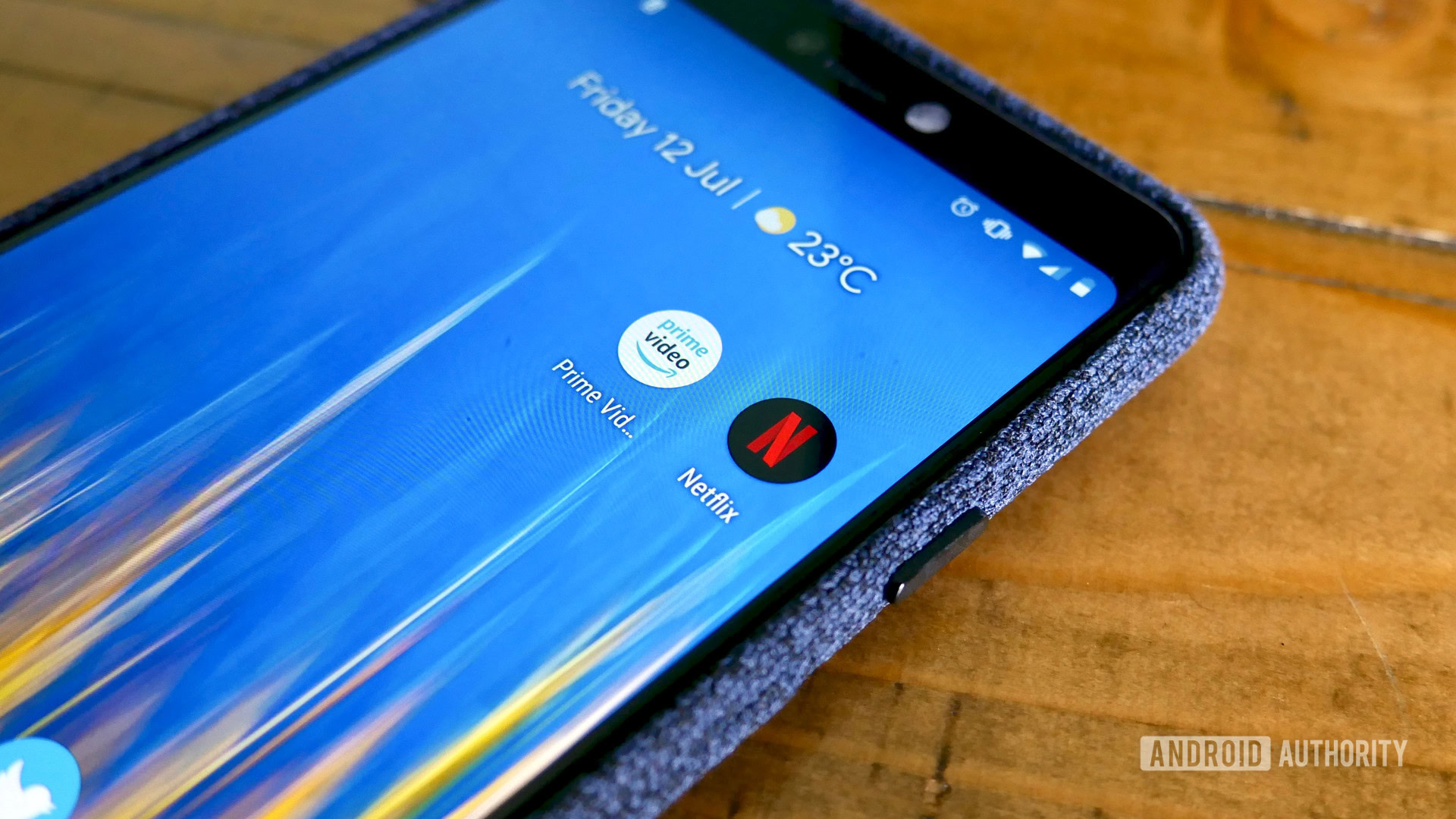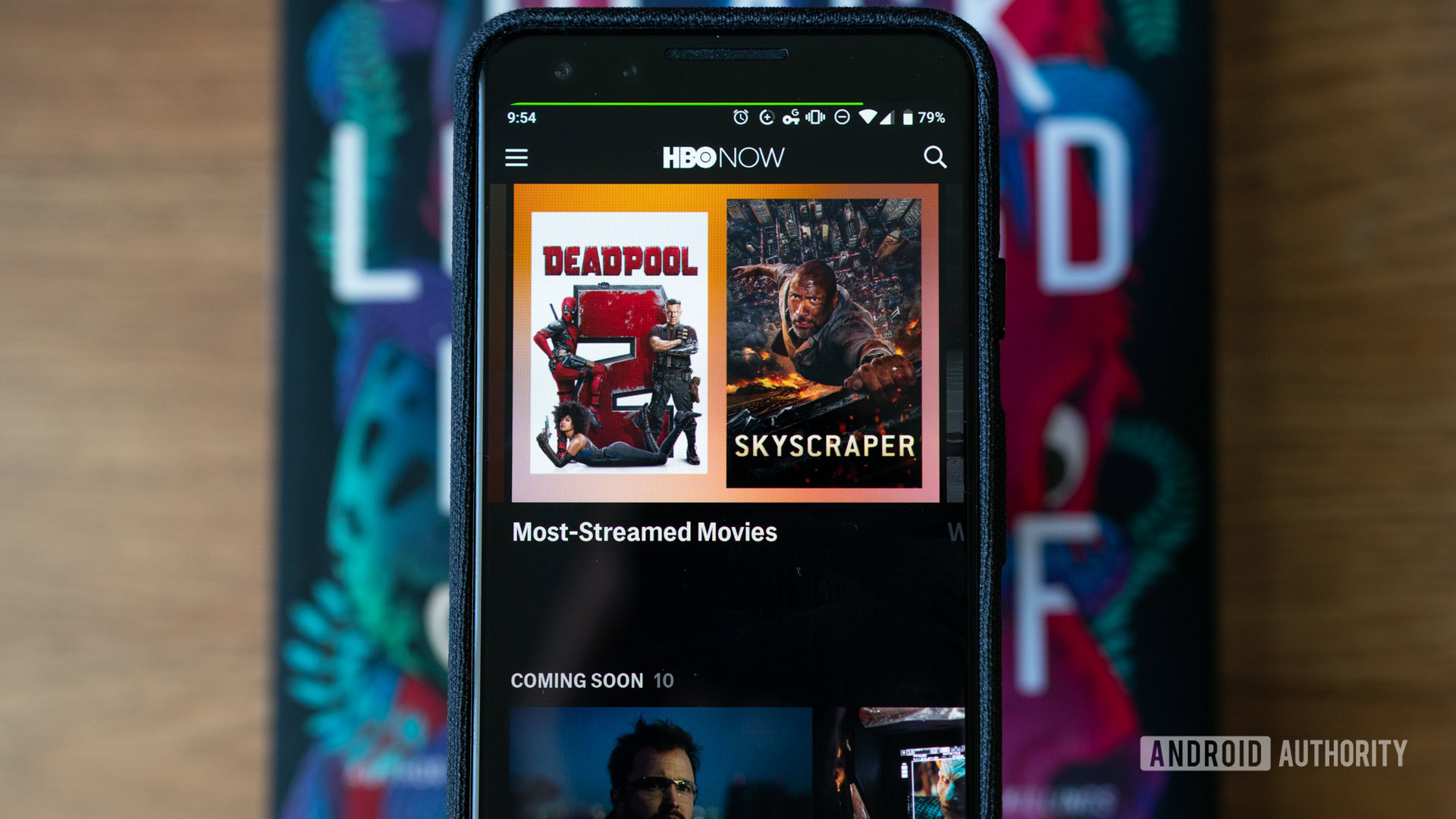Affiliate links on Android Authority may earn us a commission. Learn more.
Why streaming services let you share your password, for now

Do you share an account with friends, family, or colleagues for streaming services like Netflix, Hulu, or NBA League Pass? Or, perhaps, share your premium Spotify account further and wider than just family?
It’s no secret that many people are sharing a password. These subscription-based companies know you do it. What’s kept this consumer-friendly status-quo is a curious mix of competition, focus on anti-piracy efforts, and growth-at-all-costs. And while each plays a role in keeping the clamps off, orders from the top indicate that password sharing is coming under more intense scrutiny.
The crackdown coalition on password sharing

A Bloomberg report gave us new insight into a reported “coalition” of cable companies and streaming services, aiming at closing loopholes and cracking down on password and account sharing:
“A coalition that includes Netflix Inc., HBO, and cable-industry titans is stepping up efforts to crack down on password sharing, discussing new measures to close a loophole that could be costing companies billions of dollars in lost revenue each year.”
The Bloomberg report also included details on ideas on how to limit sharing back to its original purpose of single households only. These include forcing regular password changes, or texting codes to either unlock an account or after a certain limit of hours each day. Why? As Tom Rutledge, the chief executive officer of Charter Communications (which runs Spectrum) said last month, “it’s just too easy to get the product without paying for it.”
But that ease of use — no codes, same old password — is what keeps people coming back. And the companies know it! Instead of blaming us, the customers, they’re blaming each other:
“While industry executives widely agree password sharing is a problem, there’s no consensus on where to draw the line. Programmers and distributors blame each other for being too lenient in how many people can simultaneously stream from one account.”
New players and the open-door policy

Much depends on market position: the more established players are less generous; the newcomers open the gates. The newest services are hoping to pick up users and pay the bills sometime in the distant future. For now, with a bag of cash and a need to get attention, the path to profitability is growth. There are less restrictions to encourage everyone to watch, and they hope that being generous will pay off.
Competition and the continual threat of new players is keeping streaming services in line, for now.
Apple TV Plus, which launched November 1, allows up to six people to simultaneously stream from one family plan. Disney Plus is going for four simultaneous streams at the base price (and there’s a bunch of ways to get it for free now). Newer hands ESPN Plus allows three concurrent streams.
Related: Everything you need to know about Hulu account sharing
The less competition, the stingier streaming companies are — in Germany, Sky Ticket is the online cable-TV streaming option, with no real competition for its complete coverage of top-level sport, HBO, and so on, and it offers just one simultaneous stream.
For newer services, the downsides of restricting account sharing look worse than the upside. By restricting streaming services and forcing people to pay, the end result may be more cancellations by people fed up with complications. That results in a product used less, which gives companies poorer metrics. Netflix loves to shout about their new most-streamed TV or movie, and part of that might be down to multiple people sharing one account and watching more content.
🚨ADAM SANDLER AND JENNIFER ANISTON BREAKING NEWS ALERT🚨30,869,863 accounts watched Murder Mystery in its first 3 days – the biggest opening weekend ever for a Netflix Film. 13,374,914 accounts in the US and Canada, and 17,494,949 more worldwide.— Netflix Is A Joke (@NetflixIsAJoke) June 18, 2019
It appears to be far better to have one reliable, consistent customer that slightly abuses their account — hey, at least they’re watching! — rather than risking that account being canceled for greener pastures. That’s what HBO said a few years too: HBO’s then-CEO Richard Plepler called password sharing a “terrific marketing vehicle for the next generation of viewers.”
Piracy still the bigger bad

The bigger issue still being fought by the entertainment industry is online piracy. It is no hidden irony that, as subscription streaming content has become more fragmented, online pirating has become more popular for TV series and movies. Rather than subscribe just for one TV show, the grey areas of pirate streams, more than torrents, are now increasingly popular: 80% of piracy is attributable to streaming, according to The Global IP Center.
Piracy has switched to streams, over downloads, but the impact is claimed to be just as big
It has an impact. While the US movie and TV sector brought in $230 billion in 2017, online piracy was estimated to have caused losses of around $30 billion a year, according to the US Chamber of Commerce. Further estimates claim a “reduction of US GDP between $47.5 billion and $115.3 billion in 2018,” which is quite the estimate range. (Ironically the cost of actual piracy, mostly due to needing to re-route ships and paying for naval forces only comes to a range of $7-12 billion, according to Oceans Beyond Piracy.)
While piracy continues to be seen as a more serious problem, password sharing may be treated more softly given that at least there is revenue coming in, even if it’s not complete profit maximization.
Password sharing: Enjoy it while it lasts
As this coalition steps up efforts to fight password sharing, the power of competition may yet continue to make things flexible and easy. As long there’s squabbling over who can attract more customers, preventing people from sharing accounts might not happen quickly.
Read next: Netflix account sharing: Everything you need to know
At the time of writing, Disney Plus was live for just a few days, while AT&T’s HBO Max and NBCUniversal’s Peacock are deep-pocketed competitors coming in 2020. And we know it’s a sensitive issue, as neither service coming next year has announced how many streams it would allow.
Should one major winner emerge in the streaming wars in the coming years, expect a crackdown on password sharing.